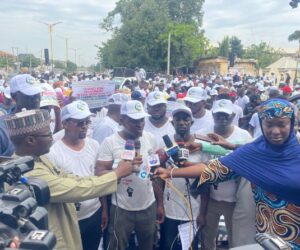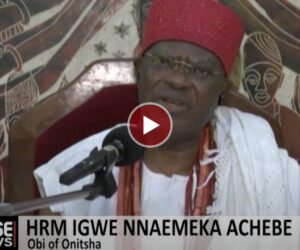
John Lebo, Lawyer and Former Speaker, Cross River State of Assembly has asserted that, The long-running dispute over Bakassi Peninsula and Cross River’s status as a littoral and oil-producing state has been clouded by misinterpretations of international judgments.
Speaking on an interview on ARISE NEWS on Friday, Lebo explained that the International Court of Justice (ICJ) never ruled on the ownership of 76 oil wells.
“The ICJ judgement has been put out of context in time, by reducing it to a conflict between Cross River and Akwa Ibom, and reducing it to a conflict with respect to 76 oil wells.
“First of all, the issue of 76 oil wells was never before the ICJ. The ICJ never determined the ownership of 76 oil wells, stressing that what was adjudicated concerned Nigeria’s boundary with Cameroon, not internal resource allocations.
Lebo explained, the ICJ’s 2002 judgment focused on drawing the maritime boundary between Nigeria and Cameroon, which led to Nigeria’s handover of parts of Bakassi. “When the ICJ gave its judgement in 2002, what the ICJ determined was that the ICJ placed the boundary between Nigeria and Cameroon at the mouth of the Atlantic Ocean, providing the Ikang mangrove forest. It gave a portion of the Ikang mangrove forest to Cameroon. The implication of that judgement is that the ICJ did not give all of the forest to Cameroon.”
Central to Lebo’s argument is that Cross River remains a littoral state under both ICJ interpretation and the United Nations Convention on the Law of the Sea (UNCLOS). “The ICJ judgement and the UNCLOS law say that the littoral status of a coastal state will be determined from the estuary. The estuary is where the internal waters meet the sea. That’s the provision of the ICJ.
“When they say littoral state in international law, it’s not Akwa Ibom, it’s Nigeria. That’s why the ICJ said in the conclusion of the judgement that Cross River is not a littoral state, but Nigeria is a littoral state. The reference is not to Akwa Ibom State.”
Following the ruling, Nigeria and Cameroon signed the Green Tree Agreement in 2006 to manage the handover of Bakassi. Lebo stressed that this political negotiation salvaged some territory for Nigeria, including Day Spring 1 and 2, Western Abana, the Kalabar estuary, and parts of the Ikang mangrove forest. “Nigeria handed over southern Bakassi and retained western Bakassi,” he said, adding that this nuance is often overlooked when people claim Cross River lost all its coastal access.
“Cross River State is a littoral state. They don’t have oil wells. There are states that are littoral states without oil wells, Cross River has oil wells, but there is no derivation on it. The state is not getting anything out of derivation.”
Lebo further argued that Section 160 of the Nigerian Constitution allows derivation in two ways, through access to the sea, or from oil wells located within a state’s internal waters and estuaries. “Cross River State has 67 oil wells from its own estuaries,” he said, but added that boundary demarcations drawn by the National Boundary Commission had transferred some of these wells to Akwa Ibom. “We saw the line that the National Boundary Commission drew, which went straight from Tom Short and took the position of the unceded Bakassi to Akwa Ibom. Akwa Ibom still got 18 oil wells from that particular situation,” he explained.
“The argument has been this, you cannot use the purpose of the Supreme Court judgement of determining oil wells at the Atlantic Ocean aspect and forget that the estuary of Cross River State gives Nigeria littoral status to the Gulf of Guinea and then gives Nigeria littoral status to the Atlantic Ocean,” he stressed.
He insisted that the renewed agitation is about safeguarding Cross River’s territorial rights, not merely revenue. “We cannot lose our territory by virtue of the fact that you are looking at oil wells.”
Erizia Rubyjeana
Follow us on:








